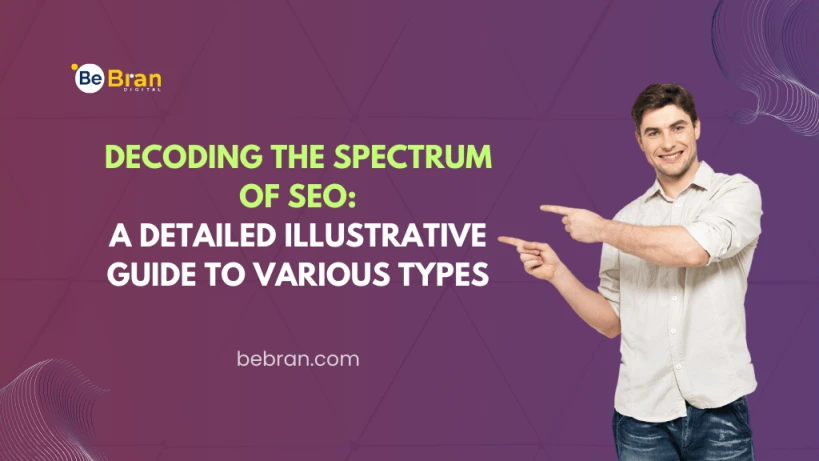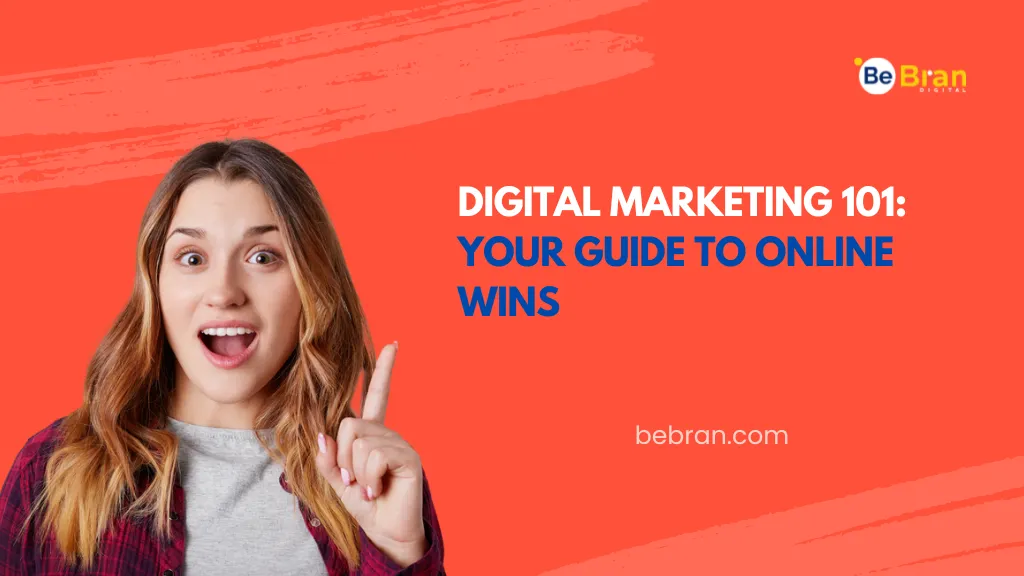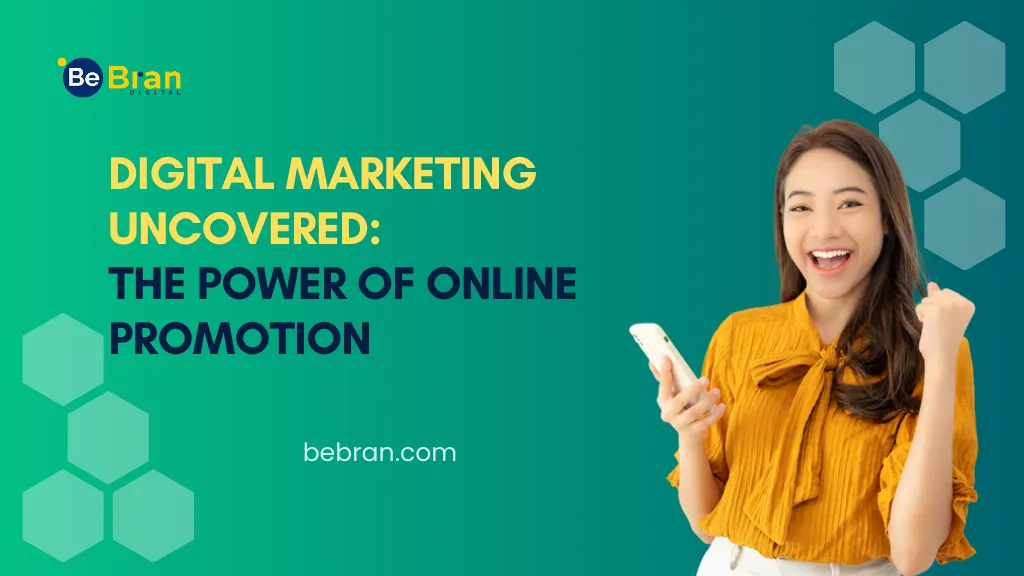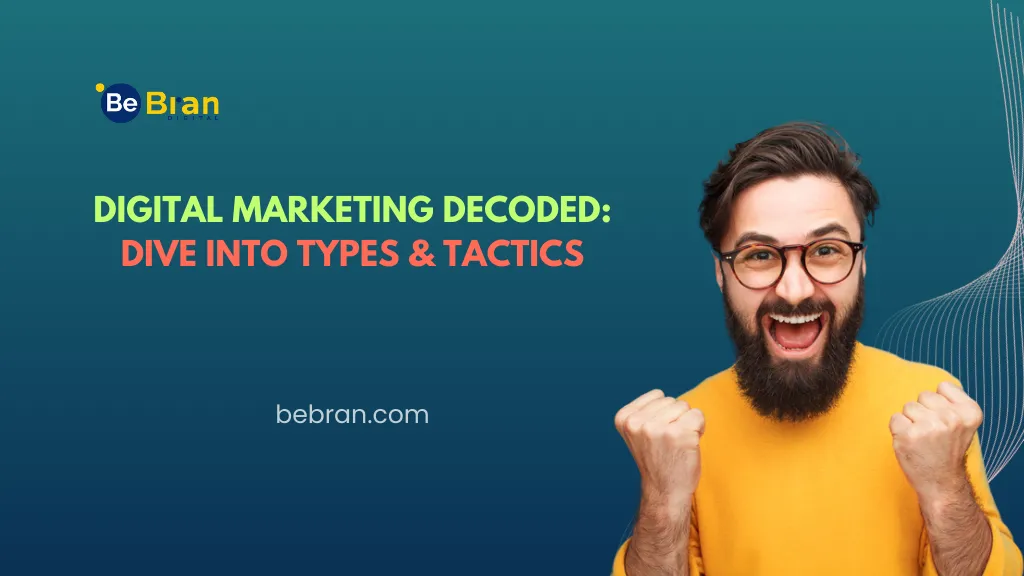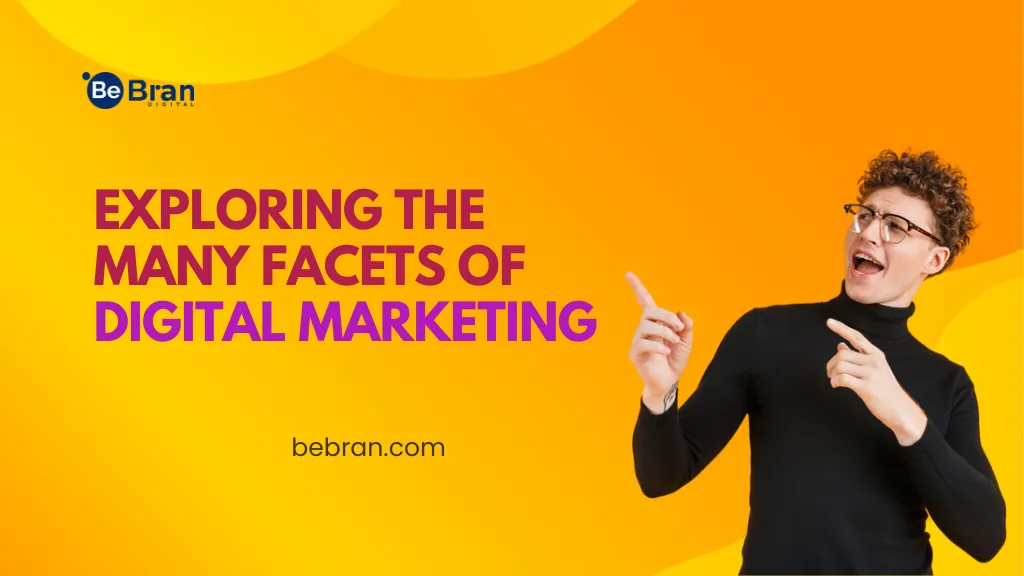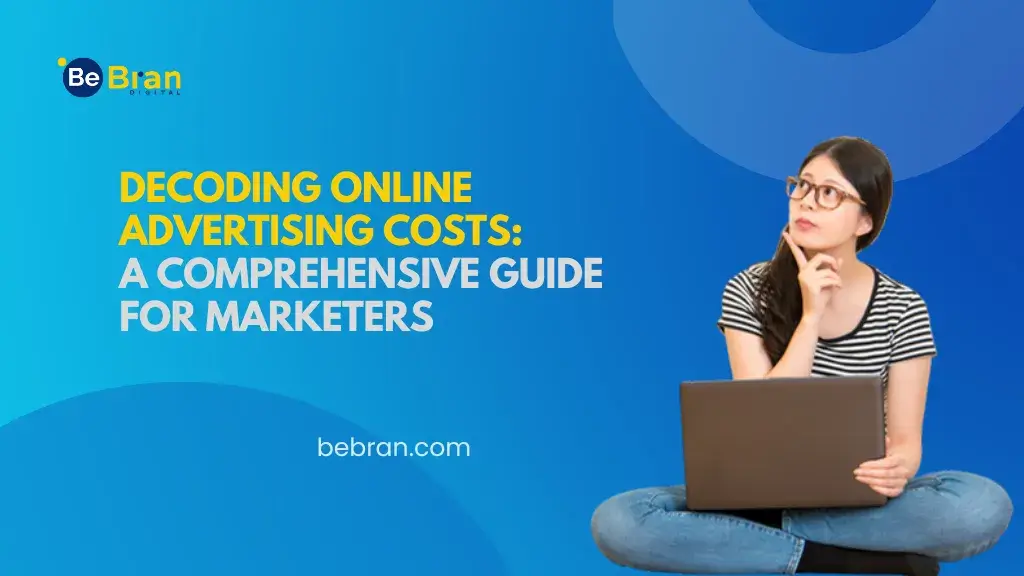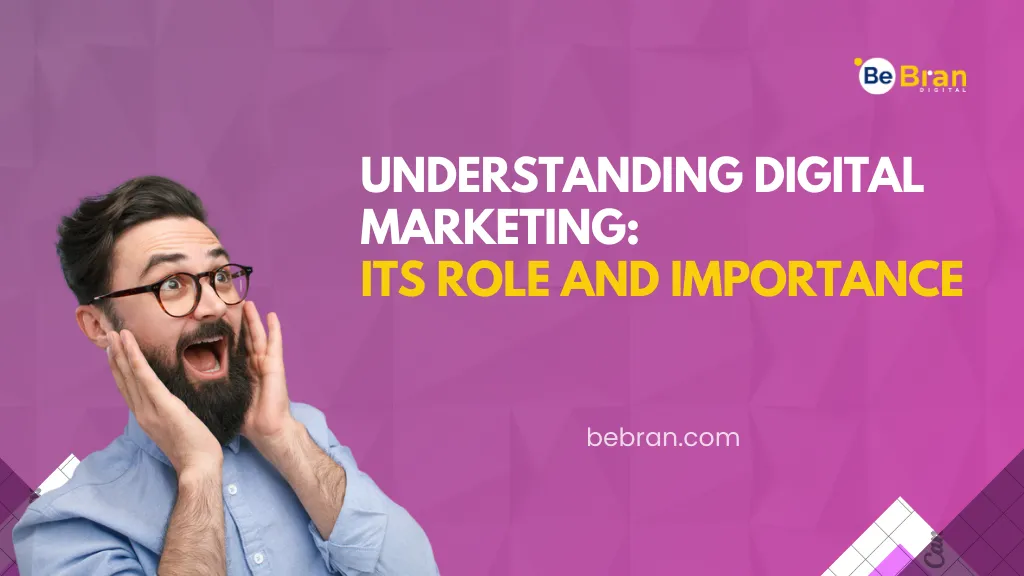
In today's connected world, "digital" is the buzzword. But what's all the fuss about the benefits of these digital marketing tactics? Simply put, it's the art of promoting products, services, and brands using online mediums. From the ads that pop up in our social feeds to the emails that greet us in the morning, the foundation of digital marketing is everywhere. It's how businesses reach out to us in an increasingly online-centric world. But beyond the jargon and the tech, it plays a crucial role in driving businesses forward in this modern age. Dive in as we unpack the role and benefits of these digital marketing tips in the contemporary world.
Foundation of Digital marketing, in its essence, is pretty straightforward. Think of it as the bustling marketplace of the internet. Just as traditional marketing uses billboards, TV spots, and radio jingles, the benefits of these digital marketing types leverage online platforms. From websites to social media, emails to search engines, it's all about connecting with the audience where they spend most of their time: online.
But it's not just about being online; it's about being 'found' online. Whether a brand wants to boost its visibility, increase sales, or build a loyal customer base, the foundation of digital marketing has the tools and strategies to make it happen. And in this age, where our screens often feel like extensions of ourselves, understanding the benefits of these digital marketing strategies isn't just an advantage—it's a necessity.
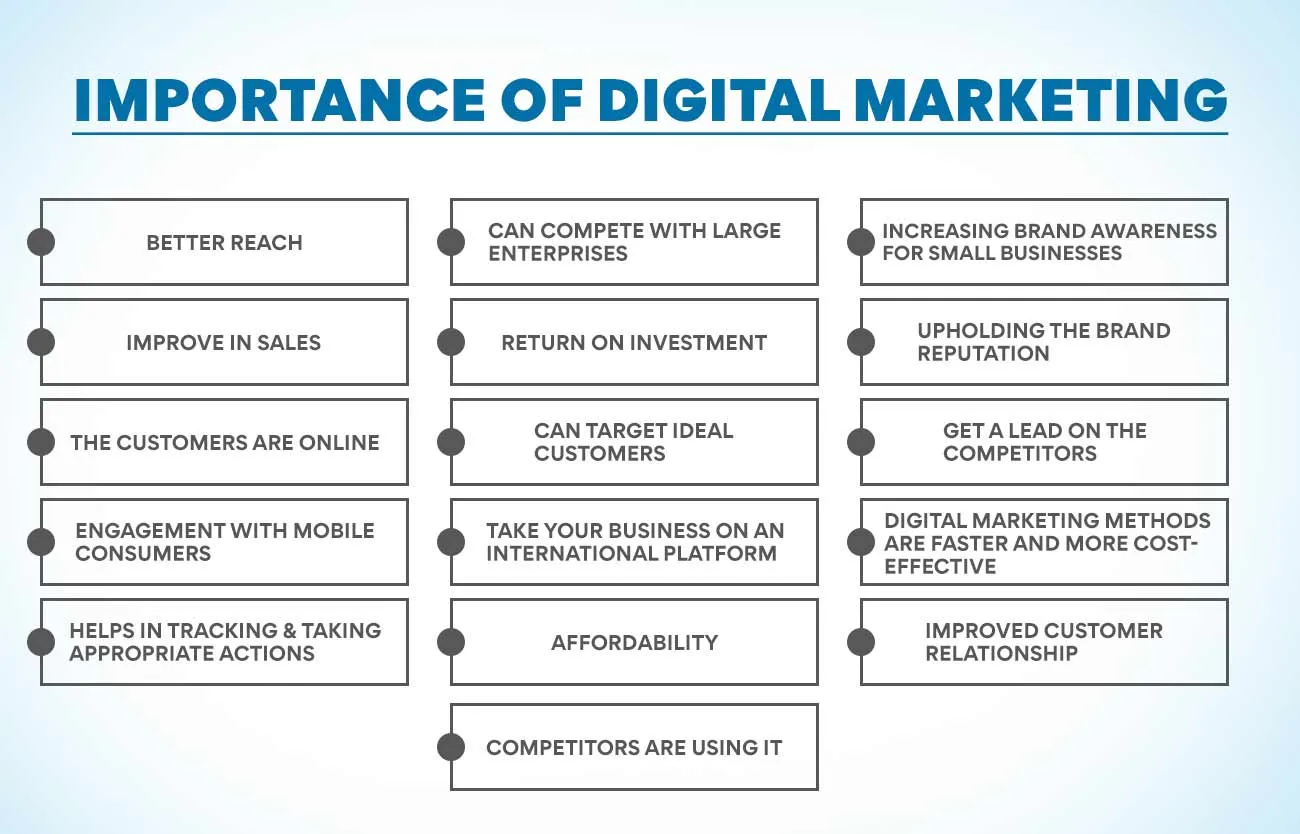
Today's world is digitally intertwined. With smartphones in almost every pocket and laptops in every bag, our daily lives revolve around the digital realm. Enter digital marketing: It's how businesses speak to today's audience. Instead of shouting messages into the void, hoping someone hears, the foundation of digital marketing pinpoints exact audiences, speaking directly to their needs and interests. It's timely, reaching people when they're most receptive, and customizable, allowing for a personal touch. Plus, it's measurable. No more guessing games; brands know what works and what doesn't. In a rapidly shifting landscape where traditional methods are fading, these benefits of digital marketing stand out, bridging the gap between businesses and their customers. In this digital age, it's not just a tool—it's the lifeline for modern businesses.
The digital landscape is vast and constantly evolving. At its heart, however, are several core components that form the backbone of any effective foundation of digital marketing strategy. These elements are not just about promoting a product or service but about connecting, engaging, and building lasting relationships with consumers. As you dive into the world of online marketing, it's essential to familiarize yourself with these key pillars. They serve as the foundation for all digital campaigns, ensuring businesses reach the right audience at the right time. Let's take a quick look at what makes these benefits of digital marketing tick.
Search Engine Optimization, commonly referred to as SEO stands tall as a cornerstone of digital marketing. It is the foundation of digital marketing. But why is it so crucial? Imagine the vastness of the internet as an endless library. Search Engine Optimization acts as the librarian that directs you to the exact book you're looking for.
Every day, millions turn to search engines with queries, from shopping needs to burning questions. Search Engine Optimization ensures that your website is easily "discoverable" among the billions of pages on the web. It's about making sure that when someone types in a keyword related to your business, your website appears on the coveted first page of search engine results.
But Search Engine Optimization isn't just about visibility; it's also about credibility. Sites that rank higher are often perceived as more trustworthy and authoritative. Moreover, with good Search Engine Optimization practices, businesses can target the right audience, improving the quality of website traffic.
In the evolving digital realm, Search Engine Optimization is more than just keywords and link-building. It's a dynamic blend of creating quality content, ensuring a fast-loading website, and crafting a seamless user experience. In essence, Search Engine Optimization is a testament to a brand's quality, relevance, and reliability in the digital age.
In today's interconnected world, where conversations are instantaneous and opinions are shaped in the blink of an eye, Social Media Marketing (SMM). Think of it as the buzzing marketplace of the digital era, where brands and consumers mingle, chat, and connect.
Social media platforms, like Facebook, Instagram, Twitter, and LinkedIn, are not just places for catching up with old friends or sharing cat videos. They're powerful tools where businesses can showcase their personality, interact with customers, and build a loyal fanbase. Every 'like', 'share', and 'comment' amplify a brand's message, often reaching far beyond traditional marketing's scope.
But what makes SMM truly remarkable? It can engage. Brands can have two-way conversations with their audience, understand their preferences, and get real-time feedback. It's a space where a brand's voice can be both professional and personal, bridging the gap between businesses and consumers.
Furthermore, with targeted ads and sponsored content, businesses can tailor their messages to specific demographics, ensuring that their campaigns resonate with the right people. In essence, Social Media Marketing isn't just about being present online; it's about being relevant, relatable, and ready to engage in the ever-evolving digital dialogue.
Step into the vibrant foundation of digital marketing, and you'll quickly spot the shining star: Content Marketing. But what's the big deal about content, and why is it causing such a stir?
At its heart, Content Marketing is all about storytelling. It's the art of crafting valuable, relevant content to attract and engage a target audience, with the ultimate aim of driving profitable action. Unlike traditional ads that shout, "Look at me!", content marketing whispers, "This is for you."
Consider the difference between a pop-up ad for a product and an informative blog post explaining its benefits and usage. Which one would you rather engage with? The blog, right? That's the charm of content marketing. It provides value, educates, entertains, and builds trust.
Moreover, good content has a ripple effect. People share valuable articles, infographics, and videos with their network, exponentially increasing its reach. This sharing culture, ingrained in today's digital age, magnifies the power of content.
To sum it up, Content Marketing isn't just about producing articles or videos; it's about creating meaningful connections, fostering trust, and positioning a brand as a reliable source of information in a noisy digital world.
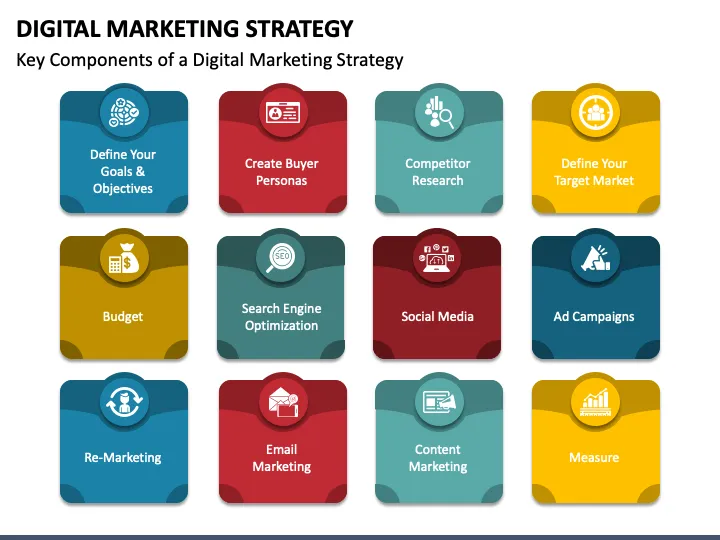
Heard of influencers or bloggers recommending products and earning a commission from each sale? That, my friend, is the magic of Affiliate Marketing. But let's break it down a bit more.
Affiliate Marketing is like setting up a vast sales team online. Brands partner with individuals or other companies to promote their products. In return, these partners, or 'affiliates', earn a piece of the profit for each sale made through their unique referral link.
Think of it as a win-win situation. Brands get increased exposure and sales without upfront advertising costs. Affiliates earn without creating a product. All they need is a platform, like a blog or social media account, and a good grasp of their audience's needs.
The beauty of this model is its performance-based nature. Brands only pay when a sale occurs, making it a cost-effective method. Meanwhile, affiliates are incentivized to promote genuinely beneficial products, as their reputation is on the line.
In essence, Affiliate Marketing leverages the power of recommendations and trust. It harnesses the vast reach of the digital landscape, connecting products to eager customers through trusted voices, making it an indispensable tool in the foundation of the digital marketing toolkit.
Ever clicked on an ad at the top of your Google search results? That's Pay-per-click (PPC) Advertising in action, and it's a game changer in the benefits of these digital marketing strategies world. Let's unravel its significance.
PPC, at its core, is pretty straightforward: advertisers pay a fee each time their ad is clicked. Instead of earning visits organically, businesses can buy visits to their sites. It's like saying, "Hey, instead of waiting for guests to find my party, I'll just send out a cab for them!"
Google AdWords is the most popular PPC platform. Ads appear at the top of search results, marked subtly with an "Ad" label. But why is this so powerful?
In the bustling digital marketplace, PPC ensures your brand stands out. It's the flashing neon sign in a street full of billboards!
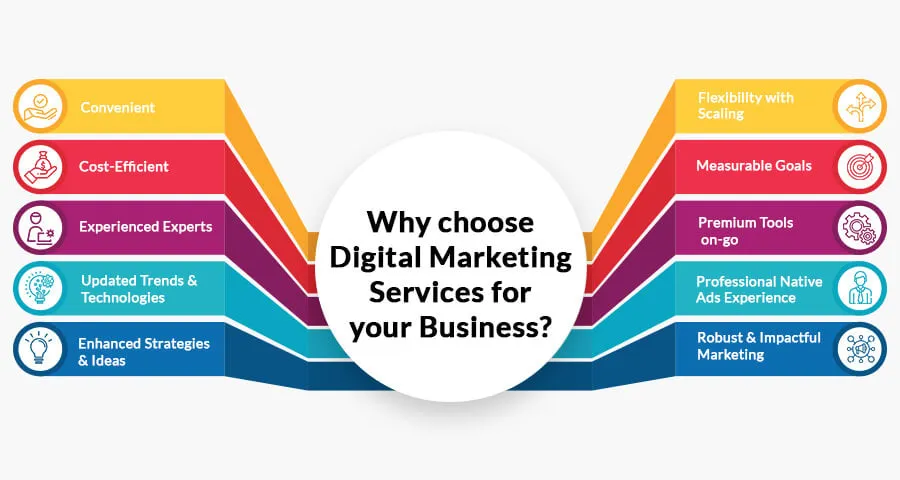
Imagine living in a world where your favorite store exists only online, and advertisements come to you personally while you're surfing the web or chatting with friends. Well, that's our world today! The foundation of Digital marketing is no longer just a trendy buzzword; it's an essential part of modern business strategies. In the age of the internet, smartphones, and instant gratification, businesses have an opportunity (and challenge) to reach out to customers in ways they've never before.
Why? Because consumers are online, seeking solutions, and making decisions at the click of a button. With the digital landscape expanding, traditional brick-and-mortar strategies just don't cut it anymore. In this digital age, if a business isn't online, it's like it doesn't even exist to a vast portion of potential customers. In simple terms, the foundation of digital marketing is the key to unlocking boundless opportunities and staying relevant in a tech-savvy world.
Ever dreamt of your local bakery being recognized in a café in Paris? Or is your handcrafted jewelry being adorned by someone in Tokyo? With the benefits of these digital marketing tactics, this isn't a far-fetched dream anymore. The Internet is a vast, interconnected web where businesses can showcase their products or services to a global audience, without geographical limitations. No longer are businesses restricted to their local towns or cities. A well-optimized website, engaging social media posts, or targeted ads can draw attention from corners of the world you may never have imagined reaching. So, whether you're in New York or New Delhi, your digital footprint can be seen, felt, and appreciated worldwide.
Marketing can be expensive, especially for startups and small businesses. But here's the good news: digital marketing offers a more affordable alternative. Traditional advertising channels like TV, print, and radio can be hefty on the pocket. On the contrary, digital methods, whether it's pay-per-click advertising or email campaigns, can be scaled to fit any budget. More so, they provide detailed analytics, making it easier to measure the return on investment. You can see what's working, and where your audience is coming from, and fine-tune your strategies for maximum impact. In essence, you get more bang for your buck!
Remember the days of waiting weeks for feedback on a new product? Those days are long gone. The benefits of these digital marketing platforms, especially social media, provide real-time engagement opportunities. Got a new product launch? Share it online and watch the reactions pour in. Need feedback on a service? Just ask your followers. This immediate loop of communication builds stronger, more authentic relationships with customers. They feel heard, valued, and connected to the brand. Plus, real-time responses mean businesses can quickly address concerns, answer queries, and adapt to their audience's needs, fostering loyalty and trust.
The digital realm is ever-evolving, and with it, so are the strategies to reach audiences effectively. Let's peek into the future of the foundation of digital marketing, shall we?
To sum it up, the future of digital marketing is a blend of technology, personal touch, and values. Embracing these trends early can set businesses miles ahead in the digital race!
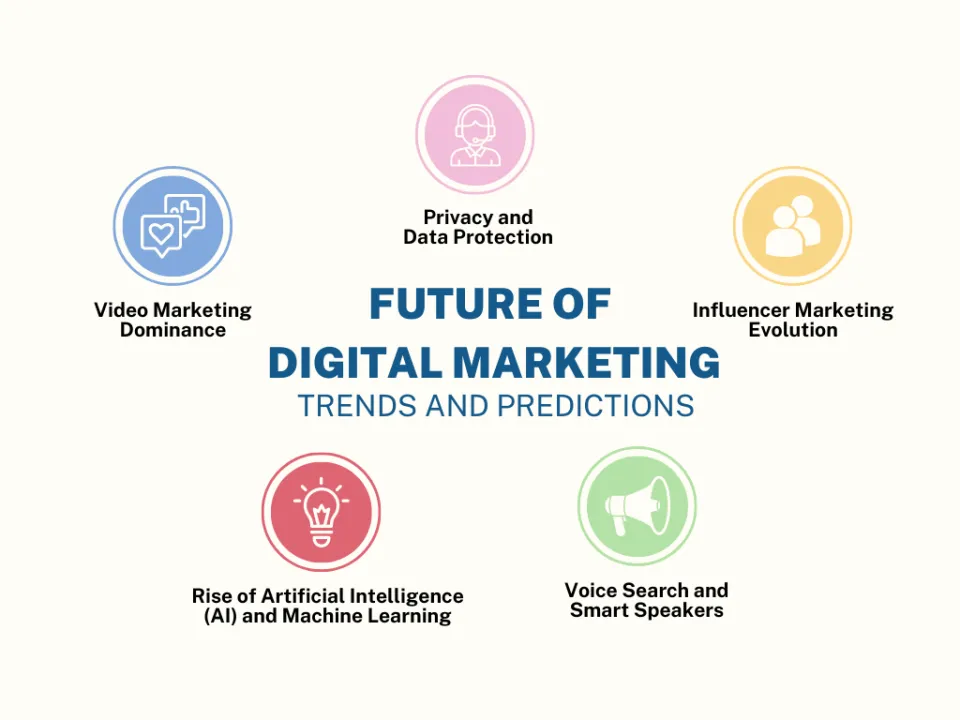
In the bustling digital era, understanding the foundation of digital marketing isn't just beneficial; it's essential. From the mom-and-pop stores in our neighborhoods to global corporations, everyone's hopping aboard the digital train. Why? Because the benefits of these digital marketing tools offer unparalleled reach, precision targeting, and data-driven results. It empowers brands to converse directly with consumers, cultivating genuine relationships. The components of digital marketing, be it Search Engine Optimization, content marketing, or PPC, each serve unique roles in this vast digital ecosystem.
As technologies evolve, so will the tactics, but the essence remains the same: creating value for the audience. So, whether you're a business owner, a marketer, or simply a curious soul, embracing digital marketing isn't just a strategic move; it's a nod to the present and future of communication. Dive in, and let the digital waves guide your journey!
1. What is digital marketing?
Digital marketing refers to the use of online platforms and digital technologies to promote products, services, or brands. It encompasses a range of activities including Search Engine Optimization, PPC advertising, social media marketing, and more.
2. How is digital marketing different from traditional marketing?
While traditional marketing uses channels like print media, television, and radio, digital marketing leverages online channels. This allows for real-time engagement, precise targeting, and data-driven strategies.
3. Why is digital marketing considered cost-effective?
The benefits of these digital marketing tools is that it allows businesses to target specific audiences, ensuring that campaigns reach those most likely to convert. With the ability to adjust strategies in real-time based on performance data, businesses can ensure better ROI.
4. How does Search Engine Optimization fit into the benefits of these digital marketing tips?
Search Engine Optimization, or SEO, is a vital component of the foundations of digital marketing. It focuses on improving a website's visibility on search engines like Google. This organic visibility leads to increased traffic and potential conversions.
5. Are traditional marketing strategies obsolete now?
No, traditional marketing still has its place, especially in local and niche markets. However, combining it with the benefits of these digital marketing strategies can lead to more comprehensive and effective campaigns.
Remember, the digital realm is vast and ever-evolving. Stay updated, stay relevant!

